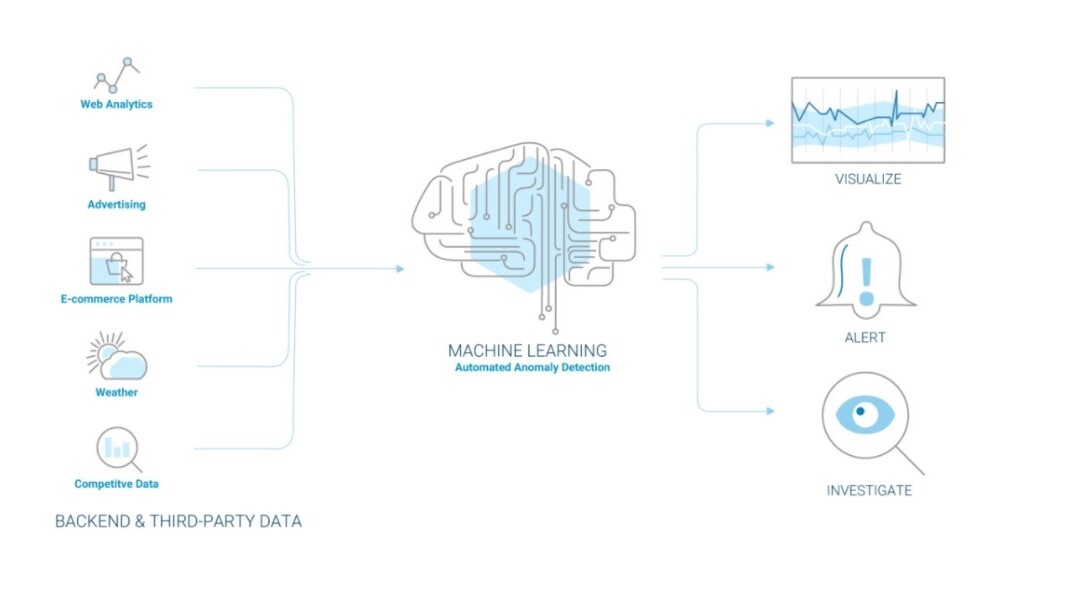
It’s time we stopped pretending that we’re computers and let the machines do their jobs. Anodot, a real-time analytics company, is using advanced machine-learning algorithms to overcome the limitations that humans bring to data analysis.
AI can chew up all your data and spit out more answers than you’ve got questions for, and the e-commerce businesses that don’t integrate machine-learning into data analysis will lose money.
We’ve all been there before: you’ve just launched a brand new product after spending millions on the development cycle and, for no discernible reason, your online marketplace crashes in a major market and you don’t find out for several hours. All those sales: lost, like an unsaved file.
Okay, maybe we haven’t all been there – but we’ve definitely been on the other end. Error messages on checkouts, product listings that lead nowhere, and – worst of all – shortages. If we don’t get what we want – when we want it – we’ll get it somewhere else. Anomalies in the market, and the ability to respond to them, can be the difference between profits and shutters to any business.
Data analysis isn’t a popular water-cooler topic anywhere, presumably even at companies that specialize in it. Rebecca Herson, Vice President of Marketing for Anodot, explains the need for AI in the field:
There’s just so much data being generated, there’s no way for a human to go through it all. Sometimes, when we analyze historical data for businesses we’re introducing Anodot to, they discern things they never knew where happening. Obviously businesses know if servers go down, but if you have a funnel leaking in a few different places it can be difficult to find all the problems.
The concern isn’t just lost sales; there’s also product-supply disruption and customer satisfaction to worry about. In numerous case studies Anodot found an estimated 80 percent of the anomalies its machine-learning software uncovered were negative factors, as opposed to positive opportunities. These companies were losing money because they weren’t aware of specific problems.
We’ve seen data-analysis software before, but Anodot’s use of machine-learning is an entirely different application. Anodot is using unsupervised AI, which accesses deep-learning, to autonomously find new ways to categorize and understand data.
With customers like Microsoft, Google Waze, and Comcast, it would appear as though this software is prohibitvely complex and designed for the tech-elite, but Herson explains:
This is something that, while data scientist is the new ‘sexy’ profession, you won’t need one to use this. It’s got the data scientist baked-in. If you have one, they can leverage this to provide immediate results. An e-commerce strategist can leverage the data and provide real-time analysis. This isn’t something that requires a dedicated staff, your existing analysts can use this.
While we ponder the future of AI, companies like Anodot are applying it in all the right ways (see: non-lethal and money-saving). Automating data-analysis isn’t quite as thrilling as an AI that can write speeches for the President, but it’s far more useful.
Get the TNW newsletter
Get the most important tech news in your inbox each week.





